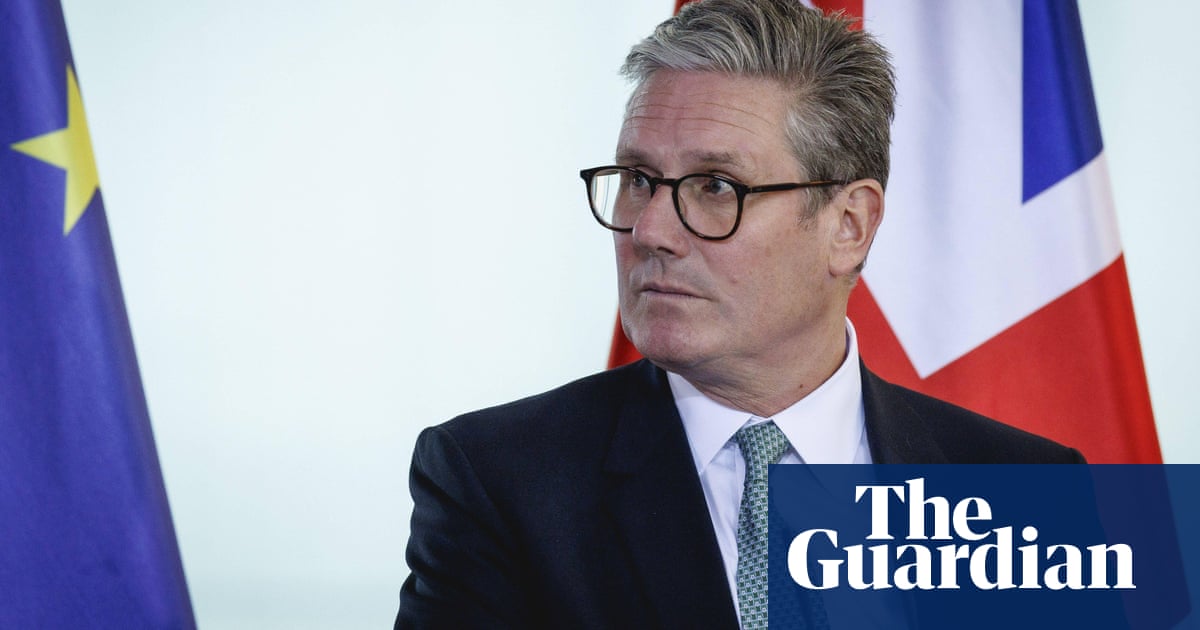Photo credit: www.theguardian.com
Keir Starmer’s Vision for Reinvigorating UK-EU Ties
Keir Starmer’s initiative to restore Britain’s relationship with its European allies hinges on the establishment of a youth mobility scheme, as emphasized by Miguel Berger, Germany’s ambassador to the UK.
According to Berger, the stability of Europe could be jeopardized if allies fail to implement “clear measures” that showcase the “concrete advantages” of their partnership, with the youth mobility scheme identified as a key element.
While recognizing the pressures faced by Starmer from Eurosceptics and pro-Brexit publications, Berger asserted that the concept of the scheme itself is straightforward. “The most important aspect is that individuals who come here will eventually return home. The aim is to gain experience and then go back,” he explained in a discussion with the Guardian.
He cautioned against mischaracterizations of the scheme as mere migration or an unrestricted freedom of movement. “It should be quite simple. But there are visible attempts to portray this as migration, or to portray it as freedom of movement,” he remarked.
Recent polling by YouGov for the European Council on Foreign Relations indicates strong public support for such a scheme in the UK. The survey revealed that nearly 70% of Britons, including a majority of 55% of former proponents of Brexit, favor a plan allowing 200,000 individuals aged 18 to 40 from both the UK and the EU to travel, study, and work freely in each other’s countries for up to four years.
When asked about the potential impact of Starmer’s commitment to the youth mobility scheme in signaling a renewed approach to cooperation, Berger responded, “I think it is an important element. Another one is the Erasmus scheme. All of that, at least for us, is really, really important.”
Berger stressed that it is primarily the responsibility of British officials to communicate the benefits of this reset in relations effectively, criticizing those who aim to distort the public’s understanding of the scheme’s implications. “We also see, looking at social media and some papers, that there is an attempt, obviously, to portray things in the wrong way,” he stated.
Prior to the holiday season, Conservative leader Kemi Badenoch publicly criticized Starmer’s plans, arguing that they would undermine the “hard-won Brexit freedoms.” In his last interview before Christmas, Starmer reaffirmed his stance on free movement, insisting, “I’ve been clear from the get-go that freedom of movement is a red line for us, and no plans in relation to free movement on any level, but we’re entering into discussions.”
Nevertheless, Berger reiterated that the youth mobility scheme is not intended as a step back from Brexit. “It respects all the red lines. And it’s simply trying to see where there are areas where it’s in our mutual interest to work more closely together,” he affirmed. He expressed optimism, stating, “I’m confident we will find a solution.”
Berger’s observations come on the heels of what officials view as a productive six-month period in terms of engaging with European partners, particularly noted is the progress between the UK and Germany on collaborative projects, including the Trinity House defense pact.
He remarked that while the bilateral treaty could have been signed before Germany’s recent elections, the focus is now on ensuring a new government that will prioritize its implementation in the forthcoming years.
Additionally, Berger highlighted the initiatives undertaken by members of Germany’s Conservative Christian Democratic Union, who have visited UK officials to underscore the significance of the partnership.
Given shared concerns regarding the security of Ukraine, the collaboration between the UK and Germany is deemed vital, as both nations navigate relationships with the US administration and Russia. “The challenge for the British government, Germany and for all of us will be to talk with the new US administration about how to engage Russia,” he noted.
Echoing Starmer’s sentiments expressed in a foreign policy speech in December, Berger stated, “We want to see that Ukraine is at the table of negotiations. We want Ukraine to take the leading role. We will think about how to strengthen Ukraine, but this will then depend, obviously, also on the new American government.”
He further emphasized that for long-term security in Europe, key nations must collaborate in discussions regarding Ukraine’s future. “This involves the United Kingdom, along with countries like Poland, France, and Germany, as we all need to have a say in this matter. The outcomes will significantly impact our security,” he warned.
Looking ahead, Starmer is scheduled to meet with EU leaders at an informal summit next month, marking the first invitation extended to the UK since the complex Brexit negotiations. Berger’s remarks suggest that Starmer may need to consider concessions, such as the youth mobility scheme, to unlock economic benefits linked to EU trade.
Source
www.theguardian.com

